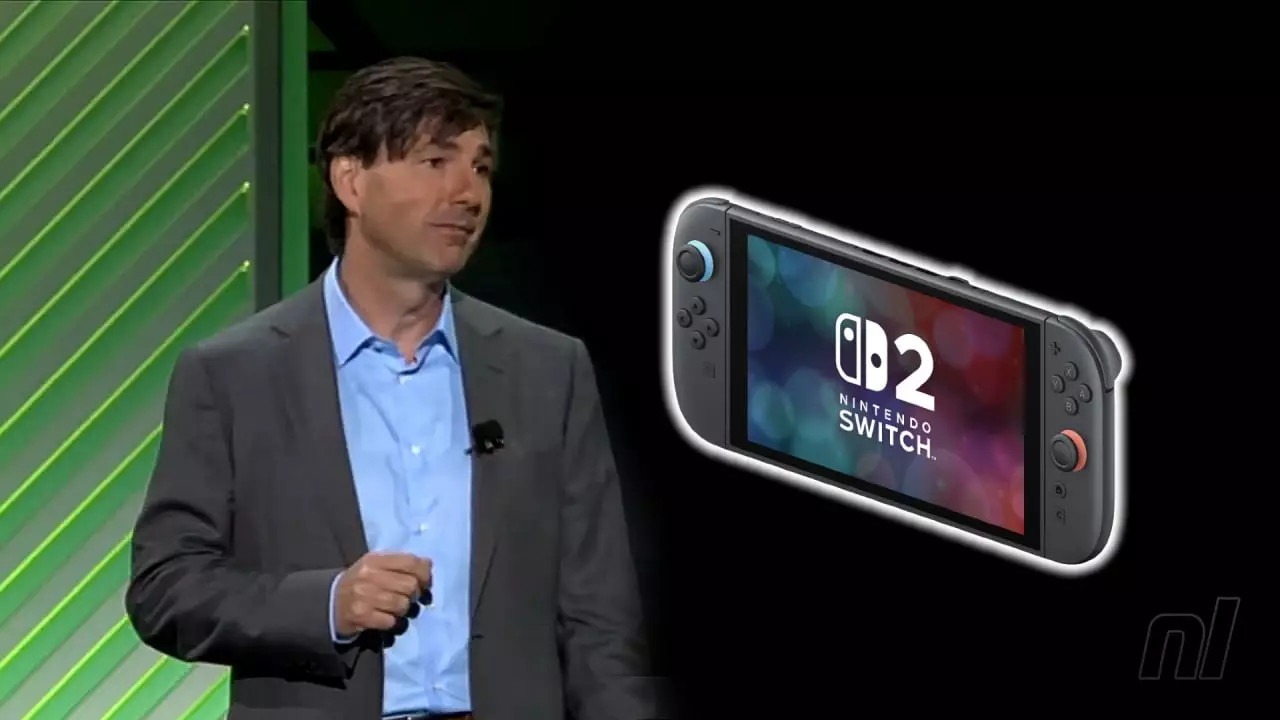Nintendo’s recent announcement regarding the pricing of the Switch 2 has ignited passionate debate among gamers and industry watchers alike. Retailing at a steep $449.99, this new console is positioned as a premium offering that boasts an impressive array of features. However, a significant portion of the consumer base is feeling alienated and frustrated, largely due to the economic landscape we find ourselves in. With inflation and economic uncertainty looming, many fans are left scratching their heads—how can they justify this price tag, particularly when there are more affordable gaming options available?
Doug Bowser, the President of Nintendo of America, has defended the pricing strategy by arguing that the Switch 2 offers an unparalleled gaming experience. His comments, however, have not been well-received. By acknowledging that the price may “well price out some consumers,” Bowser appears to suggest an elitist attitude towards gaming, akin to past missteps from other gaming executives who failed to grasp consumer sentiment. Such remarks can easily come off as dismissive, neglecting the diversity of gamers who may not have several hundred dollars to spend on a console.
The Parallels to Past Mistakes
Bowser’s comments inevitably draw parallels to infamous remarks made by Don Mattrick, former president of Microsoft’s Interactive Entertainment Business. Mattrick’s defensive comment about the Xbox 360 being the solution for gamers unable to connect to the internet is remembered as one of the most significant PR blunders in gaming history. When an executive appears out of touch with consumer realities, it can lead to an avalanche of negative sentiment, and it seems Bowser may be stepping unwittingly onto a similar path with his latest remarks.
The insinuation that those priced out of the Switch 2 should simply seek solace in older models could be interpreted as a lack of empathy. Gaming is a communal activity that thrives on inclusivity, yet Bowser’s approach could perpetuate the idea that some gamers are more important or valuable than others. Gamers, particularly in uncertain economic conditions, seek validation and understanding from industry leaders. When that is absent, resentment brews, and calls for boycotts often follow.
The Market Reception and Future Implications
The reaction to the Switch 2’s pricing has been overwhelmingly negative, with many gamers expressing disappointment and frustration on social media platforms. This backlash raises crucial questions for Nintendo about the future of the brand and its relationship with the gaming community. Will the launch of the Switch 2 be met with the same excitement and enthusiasm as its predecessor, or are we witnessing an emerging rift between the company and its most loyal fans?
Comparisons to Microsoft’s Xbox One reveal echo through the corridors of the gaming community, indicating that oppositional reception can follow a series of misjudged communications. While Nintendo fans are generally loyal, price sensitivity is real, especially when diversifying gaming ecosystems at a time when capabilities and digital offerings are also under scrutiny.
The chatter around the Switch 2 emphasizes the importance of market adaptation in response to feedback. Companies with a finger on the pulse of consumer sentiment tend to thrive, while those that do not risk falling into obscurity. Will Nintendo choose to adapt its pricing strategy or expand its offering for budget-conscious consumers? This decision could ultimately determine its standing in a competitive industry that is always evolving.
Navigating Uncertainty in Gaming
As the world grapples with economic instability, gamers are looking to companies for assurance and value—not just flashy new features. Bowser’s reassurance about support for previous Switch models may have been well-intentioned, aiming to portray Nintendo as an inclusive brand. However, it may have inadvertently cast a shadow over the launch of the Switch 2, creating an air of uncertainty.
The gaming community’s frustration could be a catalyst for broader industry discussions about accessibility and pricing. With so many consumers feeling the pinch, companies need to recognize that a more inclusive approach is not just good ethics—it’s good business. An innovative product must meet the demands of the market, and pricing plays a pivotal role in defining a brand’s legacy.
The conversation is far from over, and how Nintendo navigates this feedback in the coming months could define not only the success of the Switch 2 but also the future of gaming as a whole.

